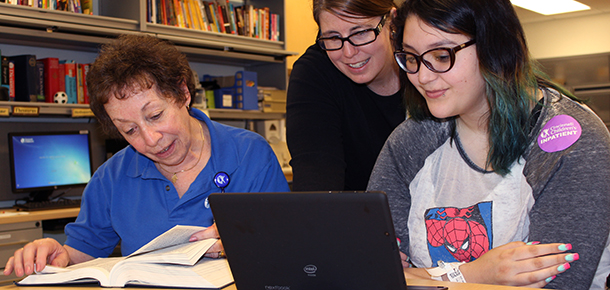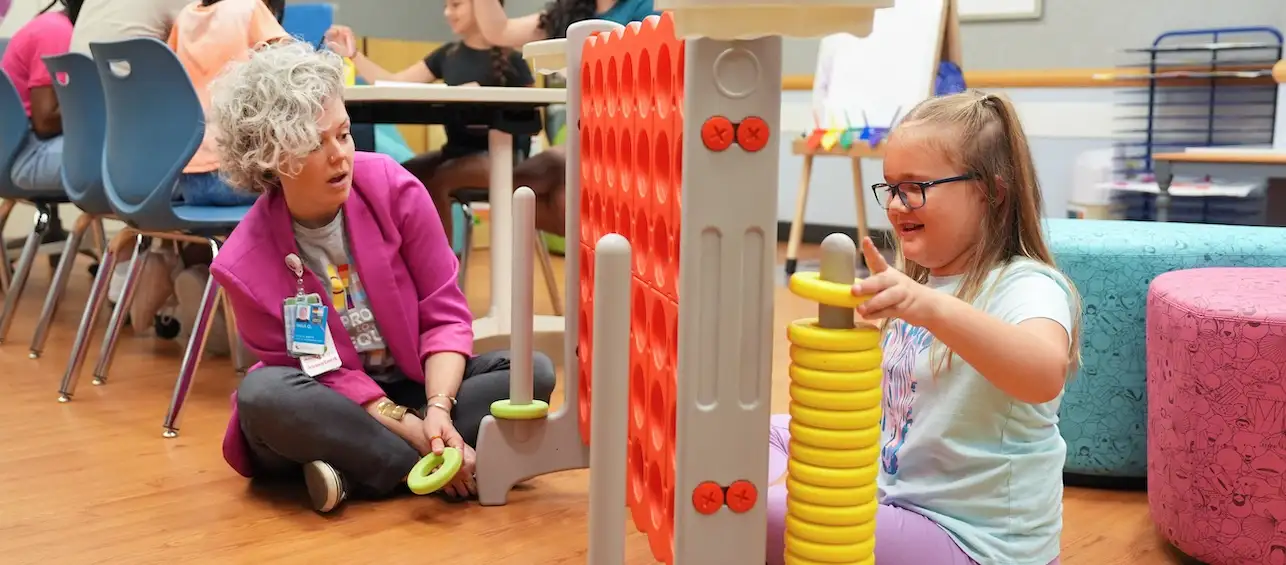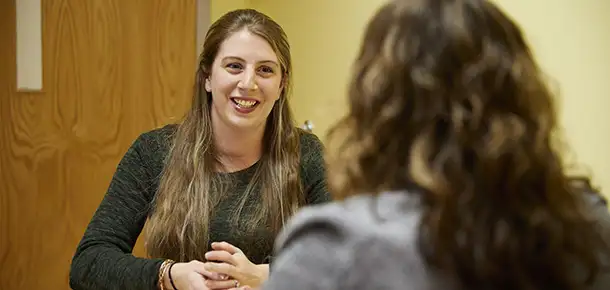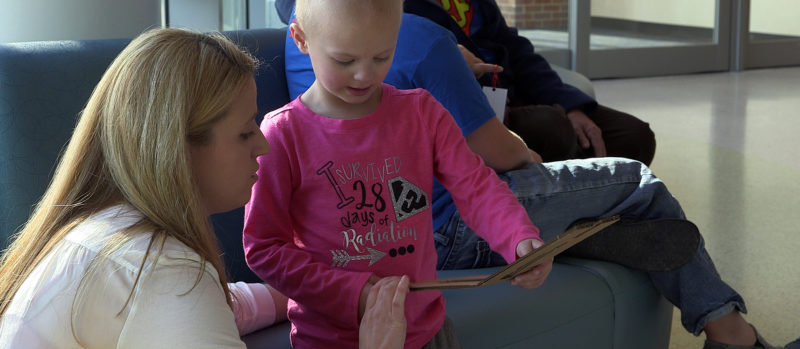Parents tell me all the time that their child’s favorite part of his or her stay in the hospital had to do with school. Not missing school, but being in it.
“Spending two hours in school with you was the highlight of my daughter’s time here at Cincinnati Children’s,” a mom wrote to me in a thank you letter. “It was like the most normal thing she did while here.”
Returning some normalcy is a big part of what we do in the Child Life School Program. Even if kids won’t admit it, absences can be stressful because school is such a large part of their daily routine. When a child can concentrate on getting better rather than worry about the burden of missing school, it makes recovery that much easier.
We have 11 certified teachers on staff to help patients from kindergarten through high school keep up – or catch up – and stay on track. Students come to us to learn everything from ABCs to high school chemistry. On average we see about 10 to 14 kids per day from the medical floors at our main campus. Patients may either come to our classroom on A7 to learn, or we can teach at their bedside.
I believe the standards of educational care we have in this hospital are second to none and I am proud of what we’re doing. We make sure we cover all aspects of a child’s education, always keeping his or her best interest in mind. Our teachers not only assist in the learning process for children, but also work with parents and their child’s school to make sure the transition back to the classroom is smooth and successful after a hospital stay.
When a child is ready to go home, our teachers often assist schools by developing a detailed transition plan that explains the child’s illness or disability and how it may impact learning or behavior. School districts have even asked us to come present at in-services to explain our role and how we can partner with them to do what is best for children who may be absent for long periods of time.
Parents play an important role, too. There are a number of things you can do to supplement teacher-led instruction if your child needs to miss school, such as:
- Encourage leisure reading. Books help increase vocabulary and comprehension. If a child struggles with reading, read with your child nightly for 15 to 30 minutes.
- Use flashcards or workbooks. I recommend the Summer Bridge Activities series. Although intended to be used over break, these workbooks are especially good at helping elementary students retain skills.
- Play board games that challenge kids to use their mind. Games can improve problem solving skills and force children to think ahead. They can also teach the importance of teamwork, playing within the rules, and being a good winner/loser.
If you’d like to request Child Life School Program services for your child during your next visit to Cincinnati Children’s, call us at 513-803-1027 or ask your nurse or Child Life specialist for assistance.






Congratulations on this blog and your successful program!
I am a teacher in a hospital school in Vancouver, BC., Canada and would love to learn more about your school program, philosophy, and service delivery model. We are moving to a new hospital soon and want to ensure we are providing the best school program we can. Your expertise would be greatly appreciated!
Hi TeacherK-5,
Thank you for your interest in our program! I will send Scott your email address and he’ll follow up with you directly.